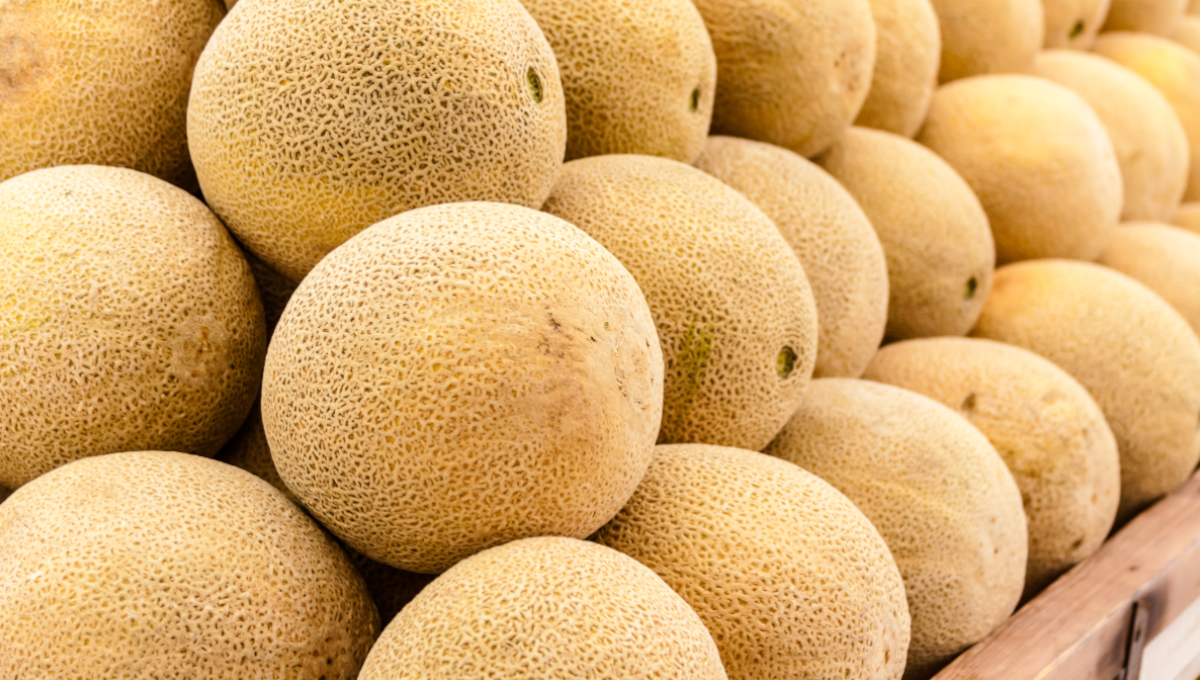TORONTO — Laura Gieraltowski, lead of the Foodborne Outbreak Response Team at the CDC’s Outbreak Response and Prevention Branch, Division of Foodborne, Waterborne, and Environmental Diseases, presented a review of multistate outbreaks of Salmonella infections linked to melons grown in Indiana.
Speaking at the annual conference of the International Association for Food Protection, Gieraltowski highlighted the outbreak in 2012, where Salmonella-contaminated cantaloupes from a farm in southwest Indiana as the beginning of a concerning pattern. The outbreak caused illness in 261 people across 24 states, resulting in 94 hospitalizations and three deaths.
2020 Salmonella Newport outbreak
During her presentation at the annual conference of the International Association for Food Protection (IAFP), Gieraltowski discussed the process involved in tracing a 2020 Salmonella Newport outbreak back to cantaloupe consumption. The outbreak investigation identified a Salmonella Newport cluster. A focused questionnaire was utilized to gather more information, and shopper card numbers were shared with the FDA to aid in the traceback investigation. The investigation ultimately linked the outbreak to cantaloupes, specifically those from a single Indiana melon grower.
In addition to the traceback investigation, a joint inspection was conducted by the FDA and the Indiana State Department of Health at the implicated farm. Environmental samples collected during the inspection yielded Salmonella strains, although not the outbreak strain. Multiple non-outbreak-associated Salmonella strains were isolated, including Salmonella Typhimurium, Salmonella Javiana and another strain of Salmonella Newport. Overall, 90 percent of the affected individuals reported eating melon, with 60 percent specifically mentioning cantaloupe. The outbreak affected 80 people across 15 states, with 22 percent requiring hospitalization.
2022 Salmonella Typhimurium outbreak
In 2022, an outbreak of Salmonella Typhimurium was investigated. The cluster detection indicated a connection to the FDA soil samples from the 2020 Salmonella Newport outbreak. The investigation revealed that 100 percent of the surveyed individuals reported eating melon, with 79 percent mentioning cantaloupe and 73 percent mentioning watermelon. The traceback investigation pointed to a common Indiana melon packing house as the likely source of the outbreak. Unlike the 2020 outbreak, the 2022 outbreak was linked to a different melon grower located several miles away. The joint inspection by the FDA and the Indiana State Department of Health resulted in the collection of environmental samples.
The outbreak affected 87 individuals across 11 states, with 89 percent reporting melon consumption and 44 percent requiring hospitalization. The source of the outbreak was identified as cantaloupes from a single Indiana supplier. Furthermore, Salmonella strains were isolated from the farm environment, suggesting the presence of a persistent environmental Salmonella reservoir. The Enhanced Salmonella Surveillance project played a crucial role in detecting the outbreak early, allowing for rapid epidemiological and traceback investigations.
The pattern of outbreaks has raised concerns about domestically grown cantaloupes, especially the three outbreaks that were all linked to Indiana-grown cantaloupes. Environmental and animal reservoirs were identified as likely contributors to the outbreaks, with animal agriculture and wildlife being potential sources. Cantaloupes themselves were found to be susceptible to Salmonella contamination, with irrigation water being a likely source of contamination. The rough external rind of cantaloupes was also identified as a potential hiding place for Salmonella bacteria.
As a result of these outbreaks, the CDC plans to continue the Enhanced Salmonella Surveillance project in 2023. The goal is to detect outbreaks as early as possible by interviewing patients using a standardized questionnaire and to identify and recall contaminated products sooner. The CDC is actively monitoring Salmonella Typhimurium and Newport strains as reoccurring, emerging and persisting (REP) strains. Collaboration with the FDA, state partners and industry is also underway to explore prevention activities that can help prevent future cantaloupe-associated outbreaks.
(To sign up for a free subscription to Food Safety News, click here.)

